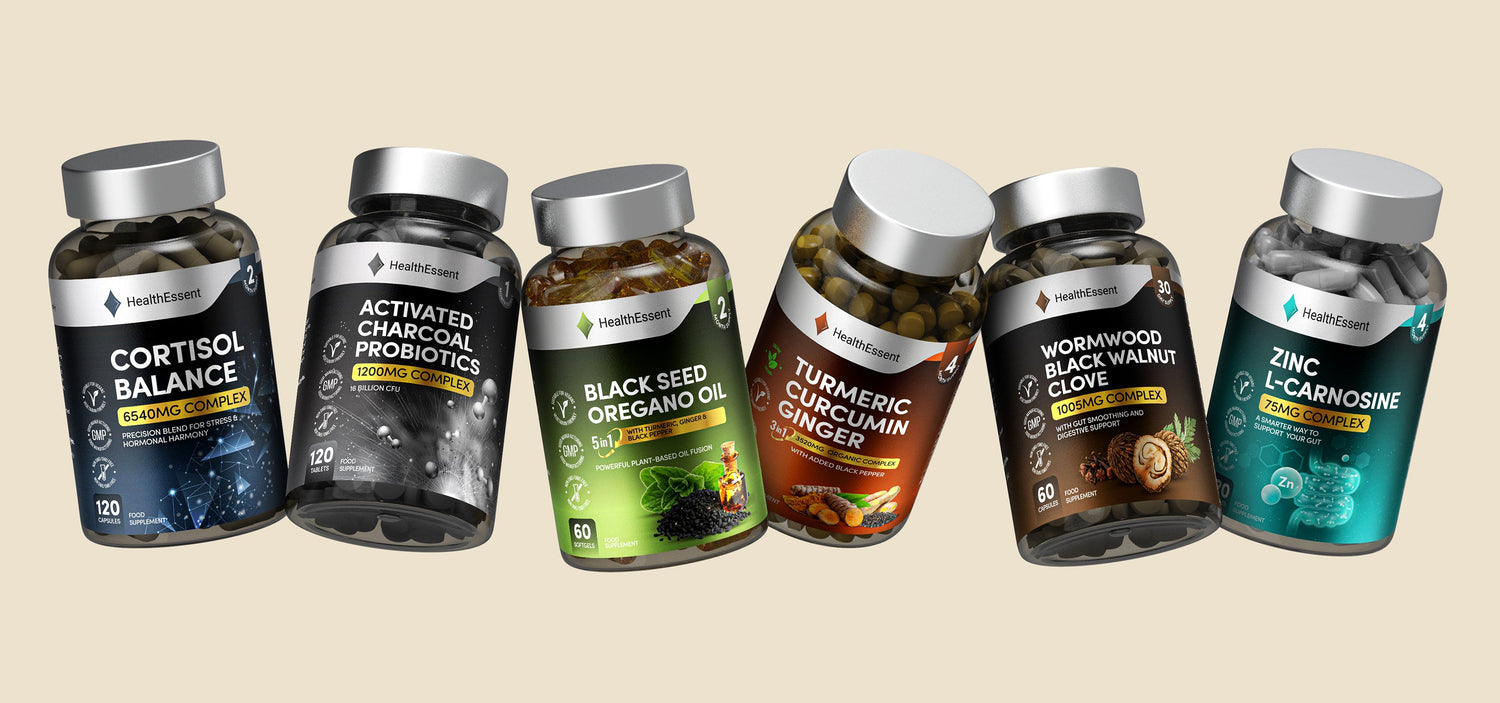Are You Absorbing Your Nutrients? The Science Behind Bioavailability
Just taking supplements is not sufficient; your body should also be capable of absorbing them. Understand the science of bioavailability and how to enhance nutrient absorption for optimal health.
Consuming a nutrient-rich diet or supplements ensures nothing more than that your body receives what it requires. The real issue is bioavailability—how efficiently your body takes in and utilizes nutrients. Even the most well-selected supplements can be worthless if they are not absorbed. Let's discuss the science of bioavailability and find out how to get the most out of nutrient absorption.
What is Bioavailability?
Bioavailability refers to the proportion of a nutrient that is absorbed into the bloodstream and becomes available to the body for use. It is a product of numerous factors, including digestion, metabolism, and interaction with other nutrients.
Evidence suggests that though macronutrients—fats, carbohydrates, and proteins—are consumed in high percentages, bioavailability in micronutrients differs extensively, in some cases dropping as low as 10%.
Factors That Influence Nutrient Absorption
1. Nutrient Form Matters
Not all vitamins and minerals are as well absorbed. For example, heme iron (animal source) is absorbed up to 30% more than plant-based non-heme iron (source). Similarly, methylcobalamin (one form of B12) is more bioavailable than cyanocobalamin.
Solving the issue: As a solution to the issue, select supplements in their most bioavailable forms, like HealthEssent’s Magnesium Complex 6-in-1, that radically enhance absorption over standard glutathione.
2. Nutrient Interactions
Certain nutrients increase absorption, whereas others compete.
- Vitamin C improves iron absorption and is therefore essential to combine plant-based sources of iron with citrus fruits.
- Calcium inhibits the absorption of iron and zinc, meaning these minerals cannot be consumed together.
Studies have demonstrated that the inclusion of 100mg of vitamin C in a meal can enhance iron absorption by as much as 67%.
3. Digestive Health and Enzymes
Your gut health directly impacts how well your body absorbs nutrients. Low stomach acid, enzyme deficiencies, or gut inflammation can hinder nutrient uptake.
As we age, research has found that the production of gastric acid diminishes, reducing the bioavailability of key minerals like calcium, magnesium, and iron.
Solving the issue: Keep the digestive system healthy with probiotics, fermented foods, and digestive enzymes.
Common Nutrients and Their Bioavailability
1. Vitamins
- Vitamin D: Fat-soluble, so best taken with a meal that includes healthy fats.
- Folate vs. folic acid: While synthetic folic acid is more bioavailable than the folates in natural foods, methylfolate is ideal for individuals with absorption problems.
2. Minerals
- Calcium: Found in dairy and leafy greens but, due to oxalates, only 5% of the spinach calcium is used.
- Magnesium: Highly bioavailable as glycinate and citrate but less so in magnesium oxide.
Increasing Your Nutrient Absorption
-
Choose Bioavailable Supplements
- Utilize liposomal, chelated, or coenzyme formulations to provide enhanced absorption.
- Use HealthEssent's Liposomal Glutathione Blend, formulated for better absorption.
-
Support Gut Health
- Eat fermented foods like yogurt and kimchi.
- Take digestive enzymes and probiotics if needed.
Realising the Full Potential of Your Supplements
Maximizing bioavailability means your body gets the most out of the nutrients you take in. Whether by selecting particular foods, preparing meals with care, or taking high-quality supplements, optimizing absorption can make a real difference in your well-being.
Need expert advice on getting the most out of your nutrients? Join our newsletter for science-backed tips straight to your inbox!




1 comment
Great read on how bioavailability affects nutrient absorption! I also liked this SheMed article on balancing macronutrients for weight loss: shemed.co.uk. Both really connect well together!